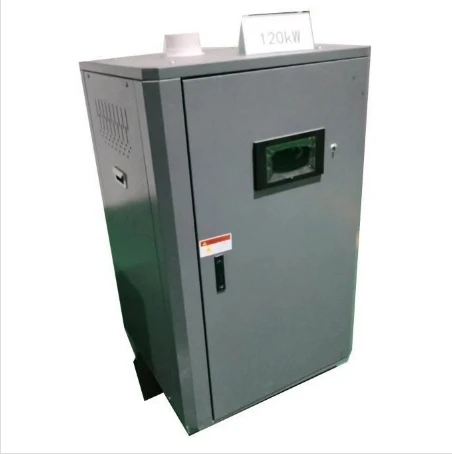- Afrikaans
- Albanian
- Amharic
- Arabic
- Armenian
- Azerbaijani
- Basque
- Belarusian
- Bengali
- Bosnian
- Bulgarian
- Catalan
- Cebuano
- China
- China (Taiwan)
- Corsican
- Croatian
- Czech
- Danish
- Dutch
- English
- Esperanto
- Estonian
- Finnish
- French
- Frisian
- Galician
- Georgian
- German
- Greek
- Gujarati
- Haitian Creole
- hausa
- hawaiian
- Hebrew
- Hindi
- Miao
- Hungarian
- Icelandic
- igbo
- Indonesian
- irish
- Italian
- Japanese
- Javanese
- Kannada
- kazakh
- Khmer
- Rwandese
- Korean
- Kurdish
- Kyrgyz
- Lao
- Latin
- Latvian
- Lithuanian
- Luxembourgish
- Macedonian
- Malgashi
- Malay
- Malayalam
- Maltese
- Maori
- Marathi
- Mongolian
- Myanmar
- Nepali
- Norwegian
- Norwegian
- Occitan
- Pashto
- Persian
- Polish
- Portuguese
- Punjabi
- Romanian
- Russian
- Samoan
- Scottish Gaelic
- Serbian
- Sesotho
- Shona
- Sindhi
- Sinhala
- Slovak
- Slovenian
- Somali
- Spanish
- Sundanese
- Swahili
- Swedish
- Tagalog
- Tajik
- Tamil
- Tatar
- Telugu
- Thai
- Turkish
- Turkmen
- Ukrainian
- Urdu
- Uighur
- Uzbek
- Vietnamese
- Welsh
- Bantu
- Yiddish
- Yoruba
- Zulu
Nov . 30, 2024 18:57 Back to list
Efficient Gas Hot Water Boiler Systems for Optimal Heating Solutions
Understanding Gas Hot Water Boilers A Comprehensive Overview
When it comes to home heating solutions, gas hot water boilers remain a popular choice due to their efficiency and effectiveness in providing reliable hot water. The operation, benefits, and various types of gas hot water boilers are essential for homeowners considering upgrading or installing a new heating system. This article delves into the intricacies of gas hot water boilers, ensuring a well-rounded understanding of the subject.
How Gas Hot Water Boilers Work
Gas hot water boilers operate on a relatively straightforward principle. They burn natural gas or propane to heat water, which is then circulated through pipes to radiators or underfloor heating systems in a home. The key components of a gas hot water boiler include a burner, heat exchanger, circulation pump, and a control system. The burner ignites the gas, producing flames that generate heat, which is absorbed by the water circulating through the heat exchanger.
As the water heats up, it is transported through the system until it reaches the desired temperature, ready to provide warmth or hot water for domestic use. Modern gas hot water boilers are equipped with advanced controls that optimize energy efficiency, allowing homeowners to manage heating needs more effectively.
Benefits of Gas Hot Water Boilers
1. Energy Efficiency One of the most significant advantages of gas hot water boilers is their energy efficiency. Compared to traditional electric water heaters, gas boilers typically use less energy to produce hot water. This not only reduces utility bills but also lessens the environmental impact.
2. Quick Heating Gas hot water boilers heat water much faster than electric systems. This means there is a reduced wait time for hot water, making them an attractive option for households with high hot water demand.
3. Longevity Gas hot water boilers tend to have a longer lifespan compared to other types of heating systems. With proper maintenance, they can last over 15 years, providing reliable service throughout their operational life.
4. Versatility Gas boilers can be used for various applications beyond just heating water. They can also provide space heating, making them a versatile choice for homeowners looking to minimize the number of heating systems in their home.
gas hot water boilers

Types of Gas Hot Water Boilers
There are primarily two types of gas hot water boilers conventional boilers and condensing boilers.
- Conventional Boilers Also known as non-condensing boilers, these systems operate at lower efficiency levels as they release heat through exhaust gases. However, they are commonly used and can be an economical choice for heating needs.
- Condensing Boilers These are the more advanced type of gas boiler, designed to utilize exhaust gases for heating purposes. By capturing and reusing heat that would otherwise escape, condensing boilers achieve higher efficiency levels, often exceeding 90%. The initial cost may be higher, but the long-term savings on energy bills can significantly offset this expense.
Installation and Maintenance Considerations
Installing a gas hot water boiler requires careful planning and professional expertise. Homeowners should consider the size of their property and hot water demands to ensure that they select the appropriate boiler size. Additionally, local regulations and codes need to be followed strictly to ensure safe and compliant installations.
Regular maintenance is crucial for the longevity and efficiency of gas hot water boilers. This includes annual servicing by qualified technicians to check for leaks, ensure the burner is functioning correctly, and perform any necessary repairs. Homeowners are also advised to check the pressure gauge and bleed radiators periodically to maintain optimal performance.
Conclusion
Gas hot water boilers provide a reliable and efficient heating solution for many homeowners. With various options available, from conventional to advanced condensing models, it is essential to assess your specific needs and consult with professionals to select the right system. By understanding how these systems work and their benefits, homeowners can make informed decisions that enhance the comfort and efficiency of their living spaces. Whether upgrading an existing system or installing a new one, investing in a gas hot water boiler may prove to be a wise choice for both immediate and long-term heating needs.
-
8mm Thin-Walled Cast Steel Manhole Cover Pallet Bottom Ring | Durable
NewsAug.04,2025
-
Premium Cast Iron Water Main Pipe: Durable, Corrosion-Resistant
NewsAug.03,2025
-
Durable Cast Iron Water Mains | AI-Optimized Systems
NewsAug.02,2025
-
High-Efficiency Propane Boiler for Baseboard Heat | Save Energy
NewsAug.01,2025
-
Premium Source Suppliers for Various Gray Iron Castings
NewsJul.31,2025
-
Durable Cast Iron Water Main Pipes | Long-Lasting
NewsJul.31,2025


